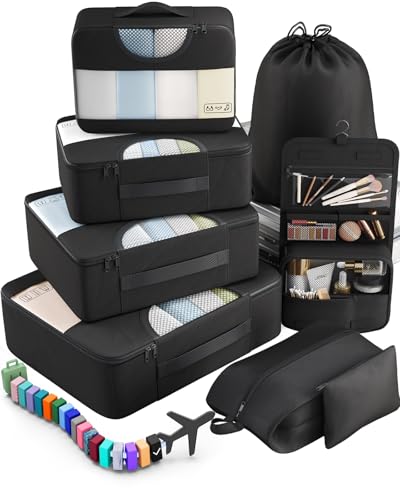In Djibouti, they use Type C and E power plugs and outlets. The voltage is 220V, and the frequency is 50Hz.
So, you’ll need a travel adapter in Djibouti. Their plugs and outlets are different from the Type A and B ones we use back in the States.
Quick Overview of the Plugs in Djibouti:
- Plug type in Djibouti: C and E
- Standard voltage: 220V
- Frequency: 50Hz
- Need a travel adapter? Yes, you do need a travel adapter
- Need a voltage converter? It all comes down to your specific device
- Recommended plug adapter: Vintar Universal Travel Adapter Kit
All data on this page is checked against official local regulations, IEC international standards, and feedback from travelers who’ve recently visited this destination.
The Only Travel Adapter You’ll Need in Djibouti
A cheap, unreliable travel adapter can overheat, fry your devices, or stop working mid-trip—and no one wants that. We don’t sell them, but we’ve done serious research to find the safest and most reliable option for Djibouti. Tested for compatibility, durability, and charging speed, this one won’t let you down:
Recommended Travel Plug Adapter
by 1,000+ travelers on Amazon
You won’t be completely stuck without a power adapter—there are usually options once you arrive. But the smart move is still to bring your own, so you’re not relying on whatever’s available.
Djibouti is often visited in combination with Ethiopia, Eritrea, or Somalia. Plug types may differ between countries.
Power Outlets in Djibouti
In Djibouti, they use Type C and E power plugs and outlets.
Type C

Type C outlets have two round prongs and no grounding pin. Type E and F plugs usually fit too, but grounded plugs will need an adapter.
Type E

Type E outlets have two round prongs and a grounding pin at the top. Type C and F plugs will also fit.
Do You Need a Voltage Converter?
Before plugging in your electronics in Djibouti, check the voltage. It’s different from the 120V used in the U.S., so you’ll likely need a converter.
Before plugging in your electronics abroad, always double-check the voltage label. If it says “100-240V, 50/60 Hz”, your device will work on both 120V and 220-240V power sources without a converter. This is common for tablets, laptops, cameras, and rechargeable toothbrushes.

Which Travel Devices May Need a Converter?
Don’t want to guess which converter works? Here are the best-reviewed ones worth checking out.
| Device | Need Converter? | Notes |
|---|---|---|
| Phone | ❌ No (usually) | Most modern phone chargers are dual voltage (100–240V) |
| Laptop | ❌ No (usually) | Check the power brick label for 100–240V |
| Hairdryer | ✅ Yes (often) | High wattage; many models are not dual voltage |
| Electric toothbrush | ⚠️ Check voltage | Some models are 110V only |
| Camera / DSLR | ❌ No (usually) | Most chargers are dual voltage |
| Power bank | ❌ No | Charges via USB, adapter is enough |
| Electric shaver / trimmer | ⚠️ Check voltage | Older or cheaper models may not support 230V |
| Tablet / iPad | ❌ No | All models are dual voltage |
| Portable fan | ✅ Yes (sometimes) | Many models are not compatible with 230V |
| Game console | ⚠️ Check voltage | Newer consoles like PS5 and Xbox are often dual voltage — check to be sure |
| Bluetooth speaker | ❌ No (usually) | Charges via USB |
| E-reader (Kindle, etc.) | ❌ No | USB charging only, no converter needed |
Top Travel Essentials to Pack
With a few key extras, you can avoid a lot of small travel problems. These essentials are smart to bring along.
Digital Luggage Scale
Packing Cubes
Power Bank
More About Djibouti
Djibouti is a small but epic country in the Horn of Africa, known for its surreal landscapes—think salt-crusted Lake Assal (over 150 meters below sea level) and the alien terrain around Lake Abbé with steam rising from limestone chimneys. The scenery here is otherworldly—earning it nicknames like the “Iceland of Africa”—and there’s a lot to explore by 4×4 and on foot.
It’s also a melting pot of cultures—French, Arabic, Afar, Somali—all coexisting around a bustling port city that controls one of the world’s busiest shipping lanes. Military bases from around the globe keep the capital surprisingly secure, even though infrastructure outside tends to be sparse.
Plan your trip between November and March when temps are cooler (70s–80s°F) and the sun’s kinder. Outside that window, it’s scorching—expect highs near 108°F. But if you’re into dramatic landscapes, beach days on tiny islands, snorkeling with whale sharks, and real-deal nomadic culture, Djibouti delivers in spades.
A trip to Djibouti is often combined with travel to Ethiopia, Eritrea, and Somalia..




